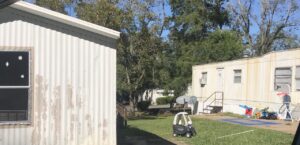
Gentrification has been an ongoing issue throughout Tallahassee, but more specifically an issue that is growing in a particular section of the capital city. The 32304 ZIP code is considered the poorest ZIP code in the state of Florida, according to the U.S.Census.
This is an area that has been taken over by college students, particularly those attending Florida State. However, there are many residents there who aren’t students, but locals seeking affordable housing.
The Student Leadership Council for the College of Arts and Sciences at FSU held its second online meeting on Thursday, hosted by Jack Fox Keen, to discuss these issues and hear from some community members.
Nada Hassanein, from the Tallahassee Democrat, was one of the first people to report about the disparities in 32304. Hassanein’s articles primarily focused on how gentrification and poverty affect one’s health. She specifically looked at the health disparities among children and families in 32304 and the lack of resources available for healthier food options, because there are only two supermarkets in the area.
Delaitre Hollinger, a former president of the Tallahassee branch of the NAACP, spoke about how gentrification in the Frenchtown neighborhood has had a negative impact and how he advocated against that. He encouraged individuals to list as many properties as possible as historical sites, to combat gentrification.
“Gentrification has played a very detrimental role in Black communities because so many of them have been destroyed and are on track to being destroyed,” Hollinger said.
Tallahassee City Commissioner-elect Jack Porter said there is a lack of data on this area, and a lot of out of town land/property owners. Porter sees part of the issue originating from failures in different sectors of the government and disinvestments at the federal, state and local levels. She said she believes these things can be improved by investments in the 32304 public and civic infrastructures, including sidewalks, street lights and flood issues.
“Global change begins at the local level,” Porter said.
A few audience members chimed in share their observations, and one said that a lot of universities play a role in gentrification by seizing properties. Another suggested policies be put in place to control the amount of properties non-Florida residents can own in one neighborhood.
Alan Rollins said that adding an urgent care center in the area to help create jobs and provide health care would make a difference.